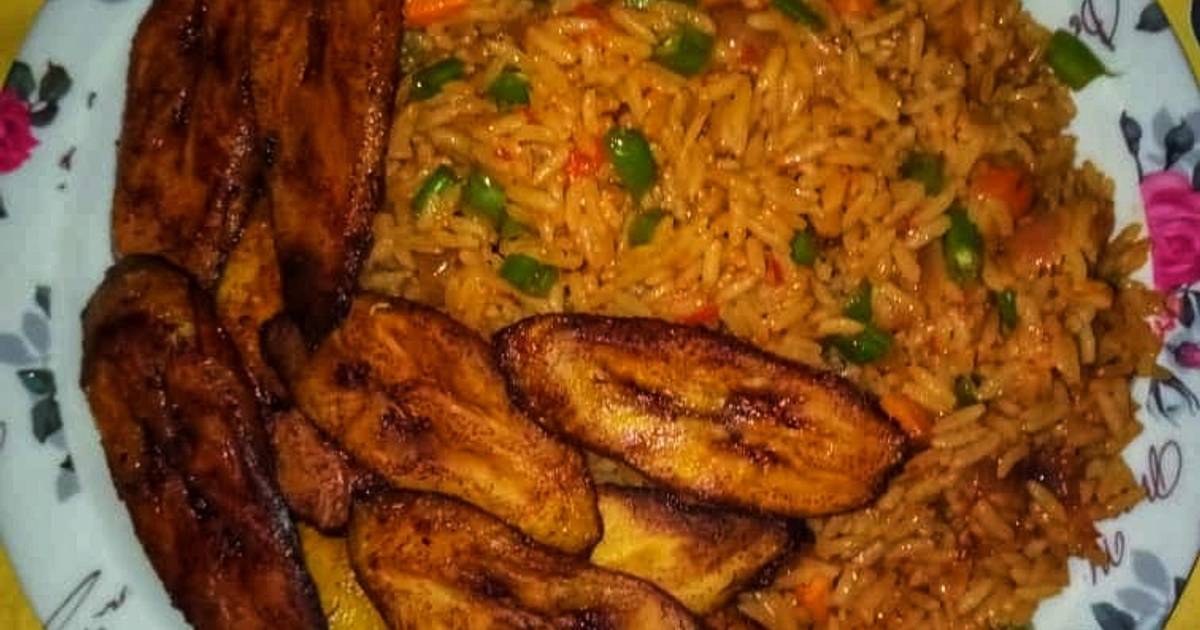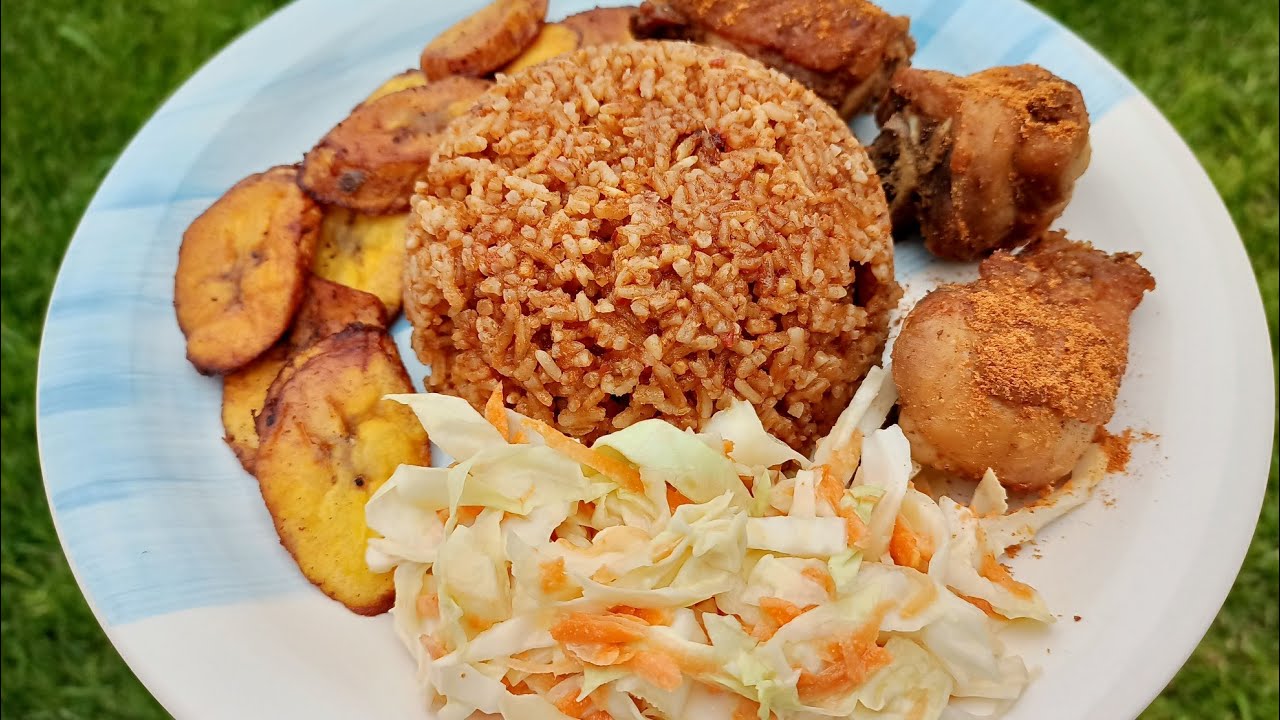How Your Starch Choice Became a Social Statement
The battle lines are drawn not in politics or sports, but on dinner plates across Nigeria. What began as simple dietary preferences have morphed into unspoken declarations of social standing, with jollof rice and plantain emerging as unlikely class indicators in Nigeria’s complex culinary hierarchy. Jollof Rice vs Plantain
The Rise of ‘Plantain Elitism’
In upscale Lagos eateries, a curious trend has emerged. The once-humble plantain has been crowned the starch of choice among Nigeria’s new elite. Food anthropologist Dr. Adeola Williams notes: “Roasted plantain with ofada sauce at ₦15,000 per plate has become the ultimate Lagos flex. It signals you’ve moved beyond ‘common’ rice dishes.”
ALSO READ: No Pay, No Work: ASUU Strike Looms as NANS Appeals for Dialogue With FG
ALSO READ: Gov Sule Launches 900-Metre Keffi Flyover, Vows to End Deadly Gridlock
Meanwhile, jollof rice – Nigeria’s beloved national dish – faces an identity crisis. Once the centerpiece of celebrations, it’s now being quietly dismissed as “struggle food” in certain circles. “I wouldn’t serve jollof at my Victoria Island dinner party,” confesses banker turned food influencer Tunde Owolabi. “It’s what my staff eats in the backyard.”
Decoding Nigeria’s Food-Based Class System
Our investigation reveals Nigeria’s edible caste system:
The Plantain Hierarchy
-
Dodo Ikoyi: Caramelized plantain with imported cheese (Upper class)
-
Boli with peanut butter: (Middle class trying to level up)
-
Street boli with epa: (The people’s choice)
The Rice Reality Check
-
Ofada rice in lace bowls: (Old money signaling)
-
Jollof with chicken: (Middle class comfort)
-
White rice and stew: (The silent majority)
Lagos chef Nkechi Eze puts it bluntly: “When a date orders pounded yam, I immediately know which tax bracket they’re in. The truly wealthy eat pounded yam ironically now.”

The Psychology Behind Food Snobbery
Social psychologist Dr. Femi Balogun explains this phenomenon: “As Nigeria’s middle class expands, people need new ways to distinguish themselves. Food has become the most visible yet deniable status marker.”
The numbers support this:
-
68% of Lagos restaurants added “premium plantain” options in 2023
-
Searches for “gourmet swallow” increased 240% last year
-
Jollof rice orders dropped 15% in upscale areas
Pushback Against Culinary Classism
Not everyone embraces this edible elitism. “This is nonsense,” declares celebrity chef Kemi Adetiba. “My five-star hotel serves jollof to billionaires daily.” Meanwhile, #JollofIsClassless trends periodically on Twitter as Nigerians defend their beloved dish.
Yet the evidence mounts. At a recent Ikoyi wedding, guests joked about the “jollof side” versus “plantain side” of the hall. Even supermarkets now position “luxury plantains” separately from regular ones.
What Your Order Really Says About You
We conducted a blind taste test with 100 Lagos professionals:
-
Plantain choosers were 3x more likely to work in finance/tech
-
Jollof loyalists predominantly came from traditional industries
-
Those selecting amala overwhelmingly owned property in mainland Lagos
“Food has become our silent resume,” observes culture critic Yemi Alade. “Before you speak, your plate has already told your story.”
The Future of Nigerian Food Culture
As boundaries blur between Nigeria’s social classes, the food wars intensify. Some predict plantain will lose its elite status as it becomes more mainstream. Others believe new distinctions will emerge – perhaps in how egusi soup is served or the origin story of your ponmo.
One thing is certain: in Nigeria’s turbulent economy, what’s on your plate speaks volumes before you ever open your mouth. The question is – which side are you on?
Discover more from News247 Nigeria
Subscribe to get the latest posts sent to your email.









